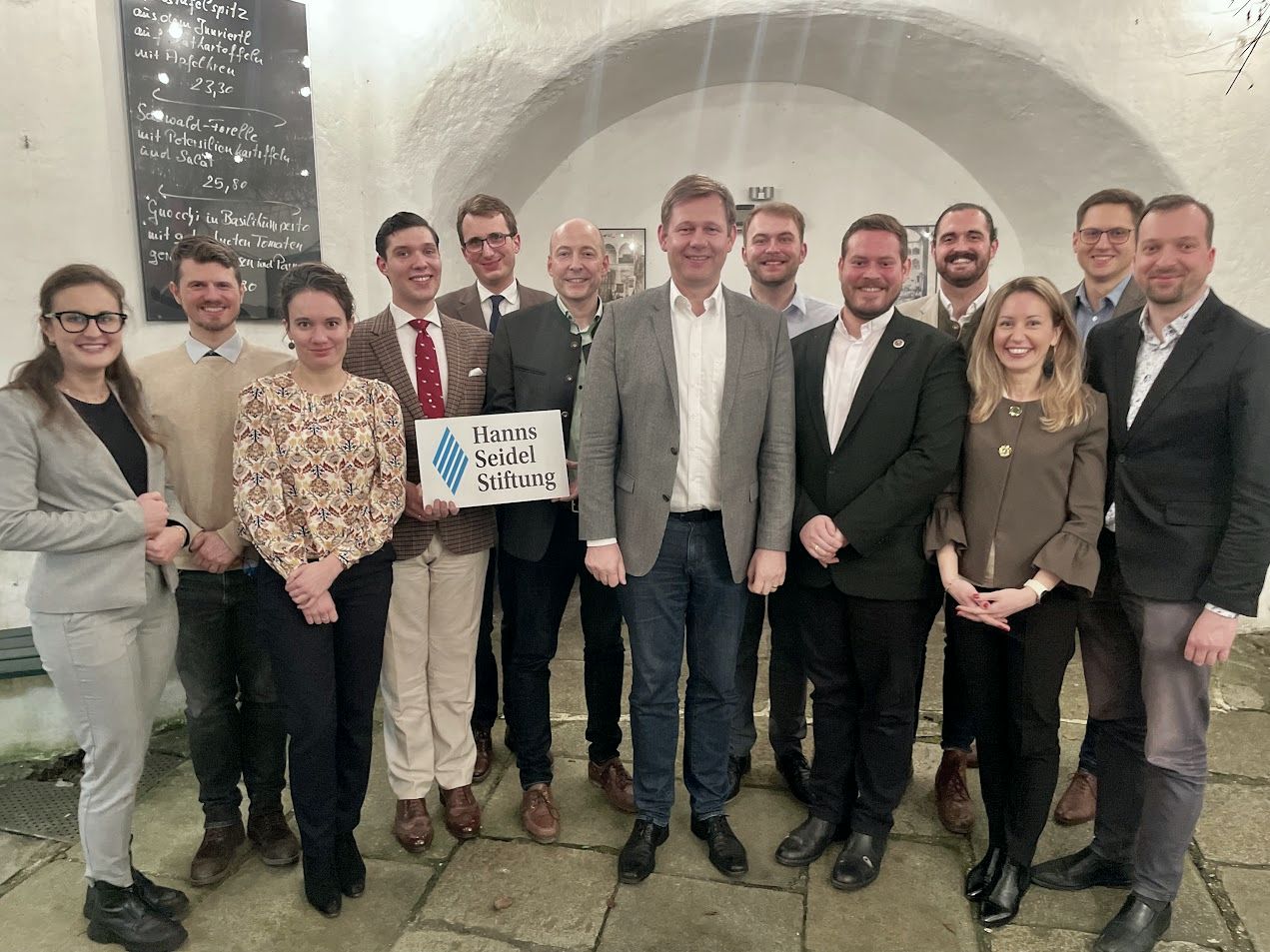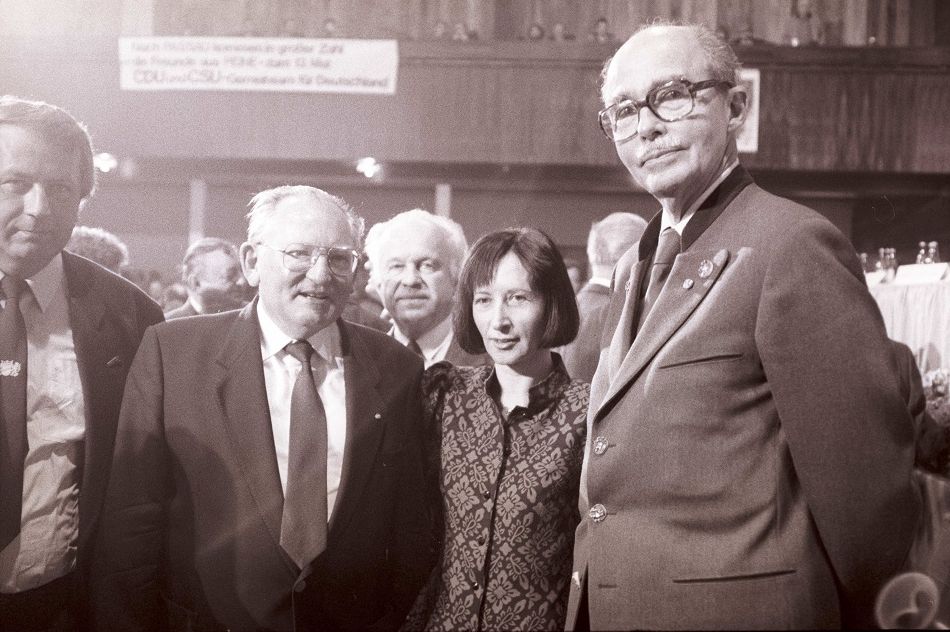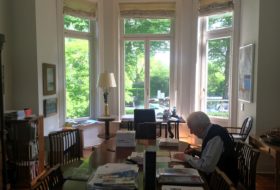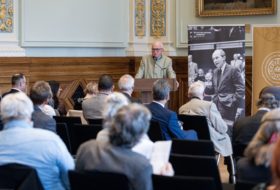Ash Wednesday occupies an important place in the political calendar of Bavaria and Germany. The best-known and most spectacular event in Germany on the first day of the fasting period is undoubtedly that of the Christian Social Union in Bavaria (Christlich-Sozialen Union in Bayern, CSU). For years, the party-affiliated Hanns Seidel Foundation (Hanns-Seidel-Stiftung, HSS) has been offering its Mitteleuropäischer Dialog programme on the margins of this event in order to strengthen cooperation in the wider Central European region and facilitate talks between Bavarian decision-makers and representatives of the young generation from the various Visegrad countries.
While the custom of Bavarian Political Ash Wednesday (Politischer Aschermittwoch) dates back over a hundred years, it was not until Franz Josef Strauss entered the scene in the 1950s that the event became widely known and nationally significant. The prominent CSU politician, blessed with excellent oratorical skills, inspired his growing audience on more than 30 occasions until his death in 1988, turning the event from a local initiative into a leading and vibrant forum for public debate and a unique institution of national political publicity. The messages of the charismatic Bavarian prime minister on Ash Wednesday became deeply engrained in political and public thinking and had a profound impact on the political and ideological debates of the time.
Since the 1970s, Otto Habsburg has increasingly engaged in German and European public affairs and made several appearances at this political gathering. His presence, however, was more than just a courtesy visit resulting from his close relationship with Franz Josef Strauss. It had symbolic significance: through his presence, he emphasised to party leaders and fellow politicians that tradition and contemporary public engagement are not contradictory. Rather, his presence made it clear that historical consciousness, dynastic heritage, and the forward-looking policies associated with these can effectively serve the nation, the Federation, and Europe—even in the second half of the 20th century.
Otto von Habsburg at the Political Ash Wednesday event, 1989
(Photo: Hanns Seidel Foundation, Munich)
In keeping with tradition, this year’s party event was held in Passau, Lower Bavaria. The keynote speaker was the incumbent party leader and Prime Minister Markus Söder, whose appearance is strongly characterised by his close connection to the legacy of Strauss. This also entails the conviction that the statements made on the first day of Lent – especially in an election year – have a considerable influence on the public debate. In addition to harsh criticism of political rivals, the speech, which lasted almost an hour and a half, dealt with key issues such as managing migration, the state of agriculture and the containment of right-wing and left-wing extremism. The event was attended by prominent CSU politicians as well as members of local and regional party organisations, and foreign guests.
This year, the HSS has arranged its Mitteleuropäische Dialog programme in the context of the Politischer Aschermittwoch again, providing young people from the Central European region with the opportunity to engage with Bavarian politicians and public figures on the most pressing issues affecting the broader public and explore the possibilities for regional cooperation. This opportunity offers young people from the Central European region the chance to discuss current issues and the prospects for cross-border cooperation with Bavarian politicians and representatives of public life. On the eve of Political Ash Wednesday, the participants discussed with Thomas Erndl, Member of the German Bundestag and Deputy Chairman of the Committee on Foreign Affairs, the most important global and European issues and the likely development of the diverse relations in the Central European region. Following the core programme in the Dreiländerhalle in Passau, the participants had the opportunity to learn more about an ambitious integrated rural development project taking place in the Bavarian Forest (Integrierte Ländliche Entwicklung Ilzer Land) and to have a brief exchange with Stefan Meyer, Member of the Bavarian State Parliament, on the current political, economic and social situation in the region.
We would like to thank Markus Ehm, HSS Regional Director for Central Europe, as well as Renáta Fixl and Kamilla Takács, Head and Project Assistant of the Foundation’s Budapest Office, for making it possible to participate in the event.
Bence Kocsev



